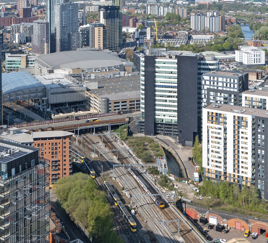“There is a complete contradiction between people who say that everything has changed in terms of travel behaviour, and the same people who say that the big capital schemes are still fine in terms of value for money. That is going to come to a big crunch.”
Anthony Smith, of Transport Focus, says: “Railways have a political resonance that totally outweighs their actual significance in the economy. They always will. They allow particular groups of people to have lifestyles that they like. And these people have sharp elbows.
“But where that falls down is in and around London, which still accounts for two-thirds of all rail journeys. And in London, the rail travellers are much more socially and economically diverse. There is a far wider social mix there.
“And the benefit from railways accrues to the country as well as to the passengers. It stitches bits of Britain together. It allows people, money and ideas to flow.”
The study has two or three more waves of data collection to go, running into 2023. The authors believe it is the only study of its kind in the world, tracking the changes in travel behaviour over time through the pandemic. The next round of data collection will come in “this getting-back-to-normal period”.
“The big question is the degree to which the shifts we have seen actually stick,” says Professor Anable.
“But our recommendations have to be taken forward now. They cannot wait. The policy choices are urgent.”
The study warns: “The key risk facing the transport system is that a majority of white-collar firms will agree a new bargain with their staff that is based around a shorter office week, of say Tuesday-Thursday, in effect re-creating the peak but with only three days’ ticket revenue to fund the infrastructure and services to sustain it.
“The replacement of large elements of commuting by digital connectivity and hybrid working was the foundation stone of adaptive capacity for individuals and businesses.
“It is crucial, both for ongoing carbon reduction as well as resilience to future shocks, that they are maintained as part of business as usual in the daily lives of many people.
“If we could switch away from where the only view of development is ‘more economic growth means more traffic’ to one where we do not have to travel so far or so often, but can still do the things we want, less really could be more.”













